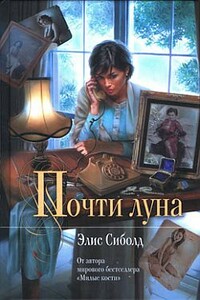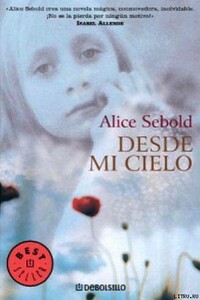I was the only one to see the colors. Just near Buckley’s ears and on the tips of his cheeks and chin he was a little orange somehow, a little red.
“Why can’t I use them?” he asked.
It landed in my father’s back like a fist.
“Why can’t I use those clothes to stake my tomatoes?”
My father turned around. He saw his son standing there, behind him the perfect plot of muddy, churned-up earth spotted with tiny seedlings. “How can you ask me that question?”
“You have to choose. It’s not fair,” my brother said.
“Buck?” My father held my clothes against his chest.
I watched Buckley flare and light. Behind him was the sun of the goldenrod hedge, twice as tall as it had been at my death.
“I’m tired of it!” Buckley blared. “Keesha’s dad died and she’s okay!”
“Is Keesha a girl at school?”
“Yes!”
My father was frozen. He could feel the dew that had gathered on his bare ankles and feet, could feel the ground underneath him, cold and moist and stirring with possibility.
“I’m sorry. When did this happen?”
“That’s not the point, Dad! You don’t get it.” Buckley turned around on his heel and started stomping the tender tomato shoots with his foot.
“Buck, stop!” my father cried.
My brother turned.
“You don’t get it, Dad,” he said.
“I’m sorry,” my father said. “These are Susie’s clothes and I just… It may not make sense, but they’re hers – something she wore.”
“You took the shoe, didn’t you?” my brother said. He had stopped crying now.
“What?”
“You took the shoe. You took it from my room.”
“Buckley, I don’t know what you’re talking about.”
“I saved the Monopoly shoe and then it was gone. You took it! You act like she was yours only!”
“Tell me what you want to say. What’s this about your friend Keesha’s dad?”
“Put the clothes down.”
My father laid them gently on the ground.
“It isn’t about Keesha’s dad.”
“Tell me what it is about.” My father was now all immediacy. He went back to the place he had been after his knee surgery, coming up out of the druggie sleep of painkillers to see his then-five-year-old son sitting near him, waiting for his eyes to flicker open so he could say, “Peek-a-boo, Daddy.”
“She’s dead.”
It never ceased to hurt. “I know that.”
“But you don’t act that way. Keesha’s dad died when she was six. Keesha said she barely even thinks of him.”
“She will,” my father said.
“But what about us?”
“Who?”
“Us, Dad. Me and Lindsey. Mom left because she couldn’t take it.”
“Calm down, Buck,” my father said. He was being as generous as he could as the air from his lungs evaporated out into his chest. Then a little voice in him said, Let go, let go, let go. “What?” my father said.
“I didn’t say anything.”
Let go. Let go. Let go.
“I’m sorry,” my father said. “I’m not feeling very well.” His feet had grown unbelievably cold in the damp grass. His chest felt hollow, bugs flying around an excavated cavity. There was an echo in there, and it drummed up into his ears. Let go.
My father dropped down to his knees. His arm began to tingle on and off as if it had fallen asleep. Pins and needles up and down. My brother rushed to him.
“Dad?”
“Son.” There was a quaver in his voice and a grasping outward toward my brother.
“I’ll get Grandma.” And Buckley ran.
My father whispered faintly as he lay on his side with his face twisted in the direction of my old clothes: “You can never choose. I’ve loved all three of you.”
That night my father lay in a hospital bed, attached to monitors that beeped and hummed. Time to circle around my father’s feet and along his spine. Time to hush and usher him. But where?
Above his bed the clock ticked off the minutes and I thought of the game Lindsey and I had played in the yard together: “he loves me/he loves me not” picked out on a daisy’s petals. I could hear the clock casting my own two greatest wishes back to me in this same rhythm: “Die for me/don’t die for me, die for me/don’t die for me.” I could not help myself, it seemed, as I tore at his weakening heart. If he died, I would have him forever. Was this so wrong to want?
At home, Buckley lay in bed in the dark and pulled the sheet up to his chin. He had not been allowed past the emergency room where Lindsey had driven them, following the shrieking ambulance inside which lay our father. My brother had felt a huge burden of guilt descend in the silences from Lindsey. In her two repeated questions: “What were you talking about? Why was he so upset?”




